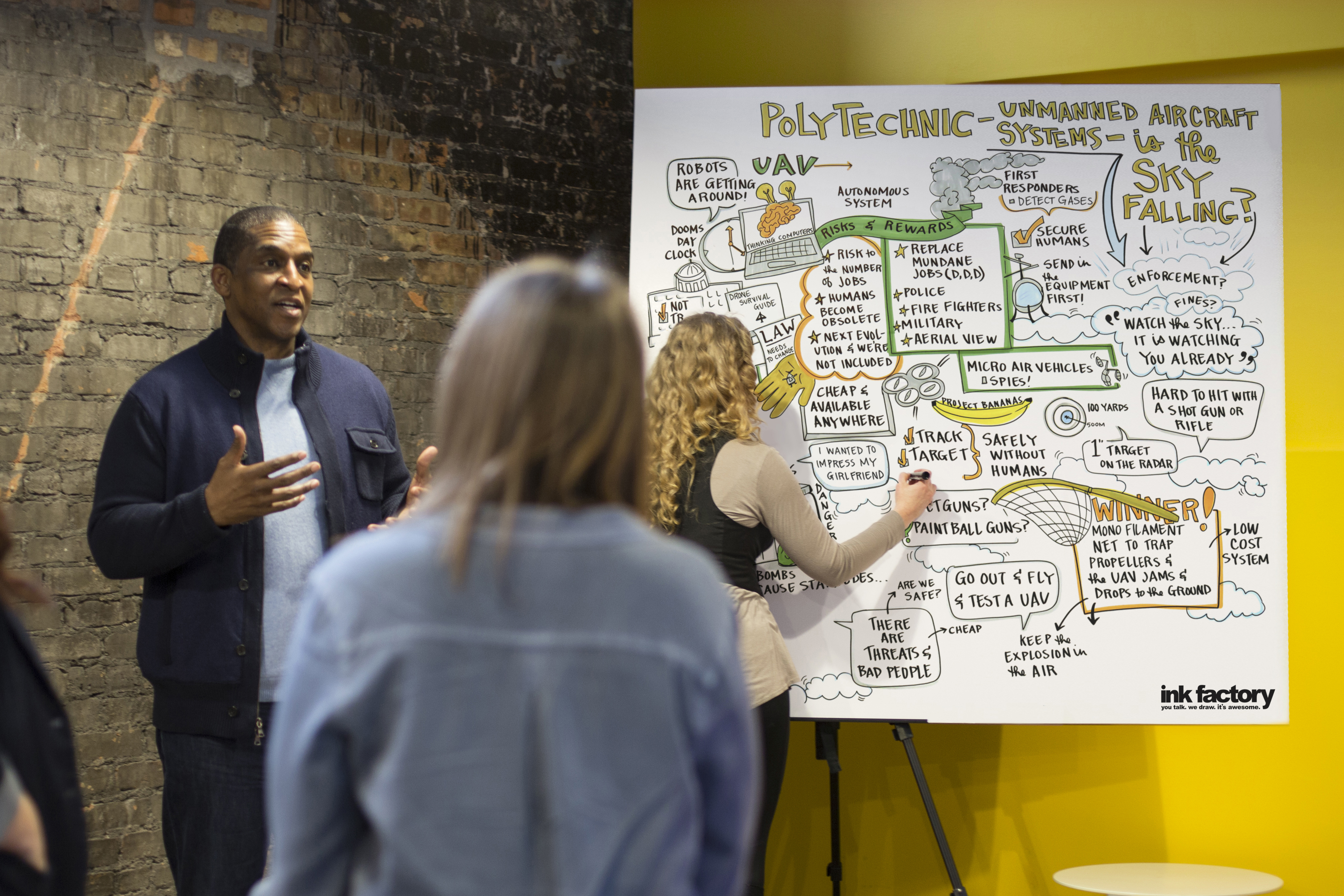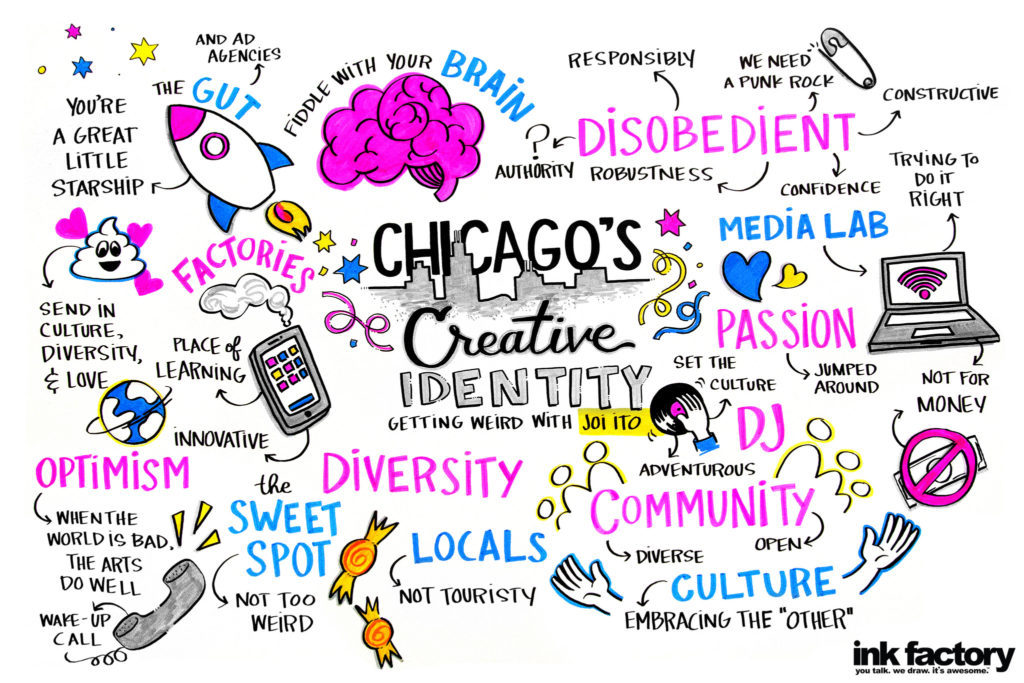
Six Habits of Excellent Listeners
This guest post is by Co-Founder of Ink Factory Ryan Robinson. Ink Factory has captured visual notes at Chicago Ideas Week since 2011, making them the experts on how to make the most out of your Chicago Ideas Week experience.
Conversation is one of the most powerful outcomes of Chicago Ideas. Conversations with the speakers who challenge the way you think, inspired attendees you meet along the way, and even the friends or colleagues you grab drinks with after. These conversations have the energy and potential to spark real change.
So, after registering for all the events you want to attend, take some time to think about how you’ll contribute to the conversation.
Here’s a tip: It starts with listening. Good conversationalists do more listening than talking. But being a good listener is tough when discussing heated topics or at odds with someone else’s point of view. Here are six habits of good listeners you can put into action so you’re ready to contribute to the conversation.
1. Good listeners don’t rush to respond.
Many of us spend a good chunk of a conversation thinking about responses. When we do this, we don’t really hear what the other person is saying. Shift your focus by repeating back at least some of what you’ve heard before sharing your own thoughts. This will make the other person feel heard, and when you do speak, they’ll trust your response more.
2. They let awkward silences linger.
Good listeners don’t fill cringe-worthy moments with words. Rather, they use them to find deeper meaning—to “hear” what the other person didn’t say outright. In psychology, this idea is called the “third ear.” Developing a so-called third ear helps us appreciate what’s driving other people, enabling us to respond more appropriately.
3. They don’t interrupt.
It seems obvious, but most of us are guilty of interrupting more than we think. Rather than jumping in, strong listeners flag questions for the speaker—things they want to clarify before adding their own response. Try leading with phrases like “It sounds like what you’re saying is…” or “If I’m hearing you correctly…” to avoid the interruption trap.
4. They slow the conversation down.
Humans think a lot faster than they talk, which is why our minds are quick to wander during a conversation. To stay focus, keep your brain occupied. Actively listen by looking for nonverbal cues, tapping into your “third ear” (see No. 2) and thinking about questions you want to ask the speaker.
5. They ask questions with complicated answers.
Asking thoughtful questions makes the other person feel comfortable and heard. The operative word here is thoughtful. Questions that can be answered with a simple “yes” or “no” (e.g., Do you support any causes?) won’t carry the conversation forward nearly as much as questions that require more complicated answers (e.g., What impact do you hope to have on this cause?).
6. They take notes.
This habit forces you to actively listen and identify important information. There are lots of different note-taking techniques you can try. At Chicago Ideas Week, visual notes are captured during every session by artists from Ink Factory, transforming what is said into real-time drawings that are then displayed after each event. These boards often spark conversations and remind attendees of key points—a perfect spot to practice your new listening skills!





